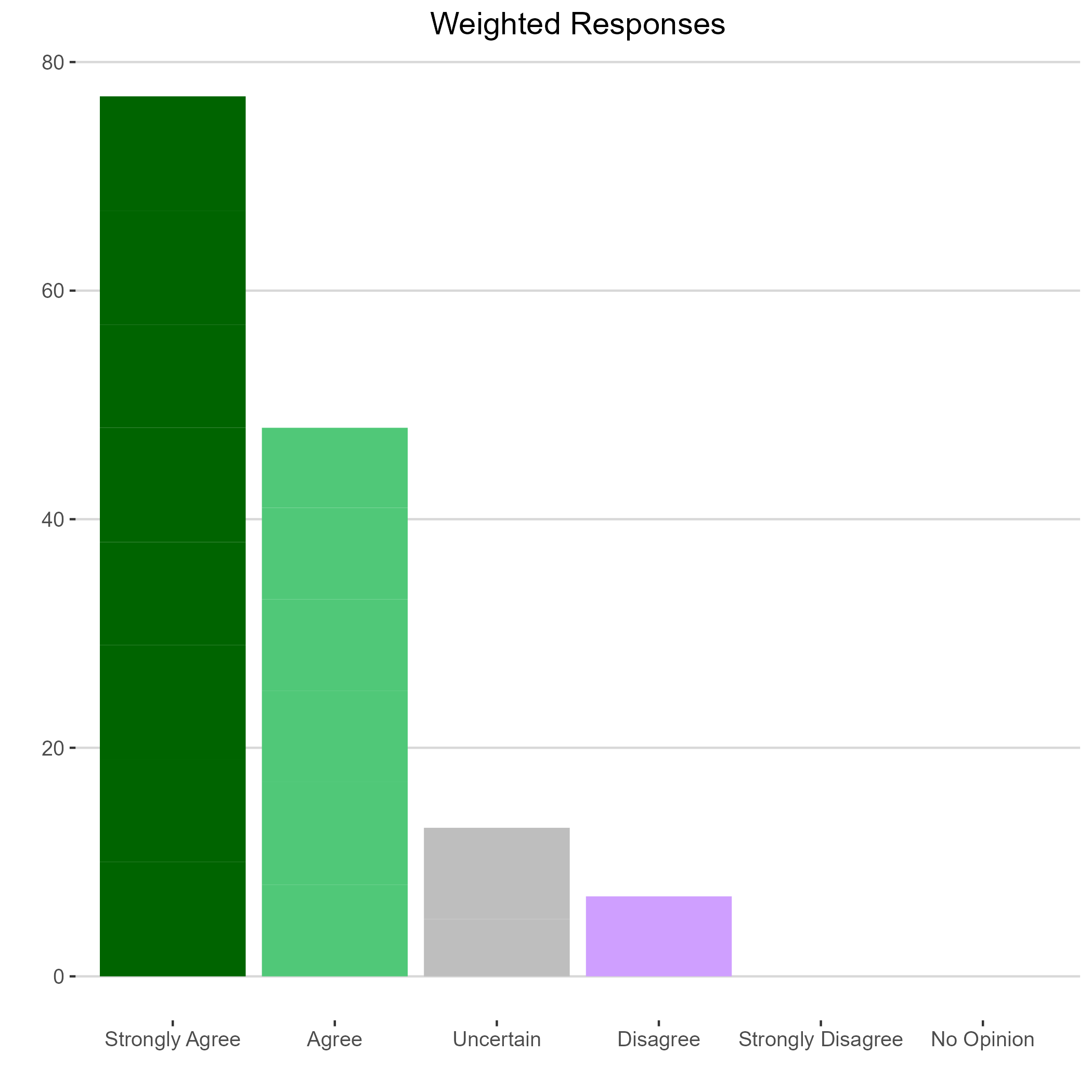| Jonathan Andreas |
Bluffton University |
Agree |
6 |
Just about anything that makes the school environment nicer will have some effect on test scores, and improving nutrition also directly improves test scores. Unfortunately, the effect on scores will probably be almost too small to measure because most poor kids already get free lunches and most non-poor kids get adequate lunches too, so the number of kids who will have improved nutrition is a small percentage. However, it will also reduce the stress on poor kids who are stigmatized for getting free lunches (something I remember well as a poor kid) and that will help their test scores. If test scores were the only goal, this would be a very inefficient method for improving test scores relative to other ways to spend the money, but policymakers clearly also have other goals too. |
| David Brasington |
University of Cincinnati |
Uncertain |
8 |
It will help children who otherwise wouldn't get the food, but this is a sufficiently small number of students that it wouldn't move the needle. My children also don't like the food school offers, so take-up might be low, too low to make the cost worthwhile. |
| Ron Cheung |
Oberlin College |
Agree |
8 |
|
| Kevin Egan |
University of Toledo |
Strongly Agree |
8 |
Even if parents can easily afford it this would free them from cumbersome paperwork to sign up and pay each month for student meal plans...just use everyone's tax dollars and save all parents the hassle...they will appreciate it. Moreover, it is vital students are well fed in order to focus and learn. And the truth is the school day can be long and many students don't plan on having enough food. |
| Vinnie Gajjala |
Tiffin Univeristy |
Strongly Agree |
10 |
|
| Will Georgic |
Ohio Wesleyan University |
Strongly Agree |
10 |
There is an abundant body of literature that finds that universal free school lunches not only improve average test scores and overall academic performance (Gordanier et al. 2020 among others), but also reduce suspensions (Gordon and Ruffini 2018). While not every student's academic achievement will improve, the average effect for all students will be unambiguously positive. |
| Bob Gitter |
Ohio Wesleyan University |
Strongly Agree |
9 |
Hungry children do not do as well in school. |
| Christian Imboden |
Bowling Green State University |
Agree |
7 |
Given that some students endure food insecurity, which is known to take up a lot of cognition, this will hopefully reduce that source of stress and allow students to better focus on their studies. Decreasing food insecurity will probably have the impact of raising measurable IQ by a few points. |
| Michael Jones |
University of Cincinnati |
Uncertain |
7 |
|
| Charles Kroncke |
Mount Saint Joseph University |
Uncertain |
5 |
While free lunches help many families, it will be difficult to connect the dots between the food and academic performance. |
| Bill LaFayette |
Regionomics |
Strongly Agree |
9 |
Many children, especially in urban districts, live in economically challenged families, possibly without access to fresh decent food. Hungry children cannot learn. This would also relieve the household of an additional expense |
| Trevon Logan |
Ohio State University |
Agree |
8 |
|
| Curtis Reynolds |
Kent State University |
Agree |
7 |
I am more confident about the effect on test scores than graduation. But graduation is a more important metric and I do think that this could help. While some kids may not need this, a lot of kids rely on school lunches as for their food or would benefit from having free lunch. |
| Ejindu Ume |
Miami University |
Strongly Agree |
9 |
|
| Kathryn Wilson |
Kent State University |
Agree |
7 |
|




